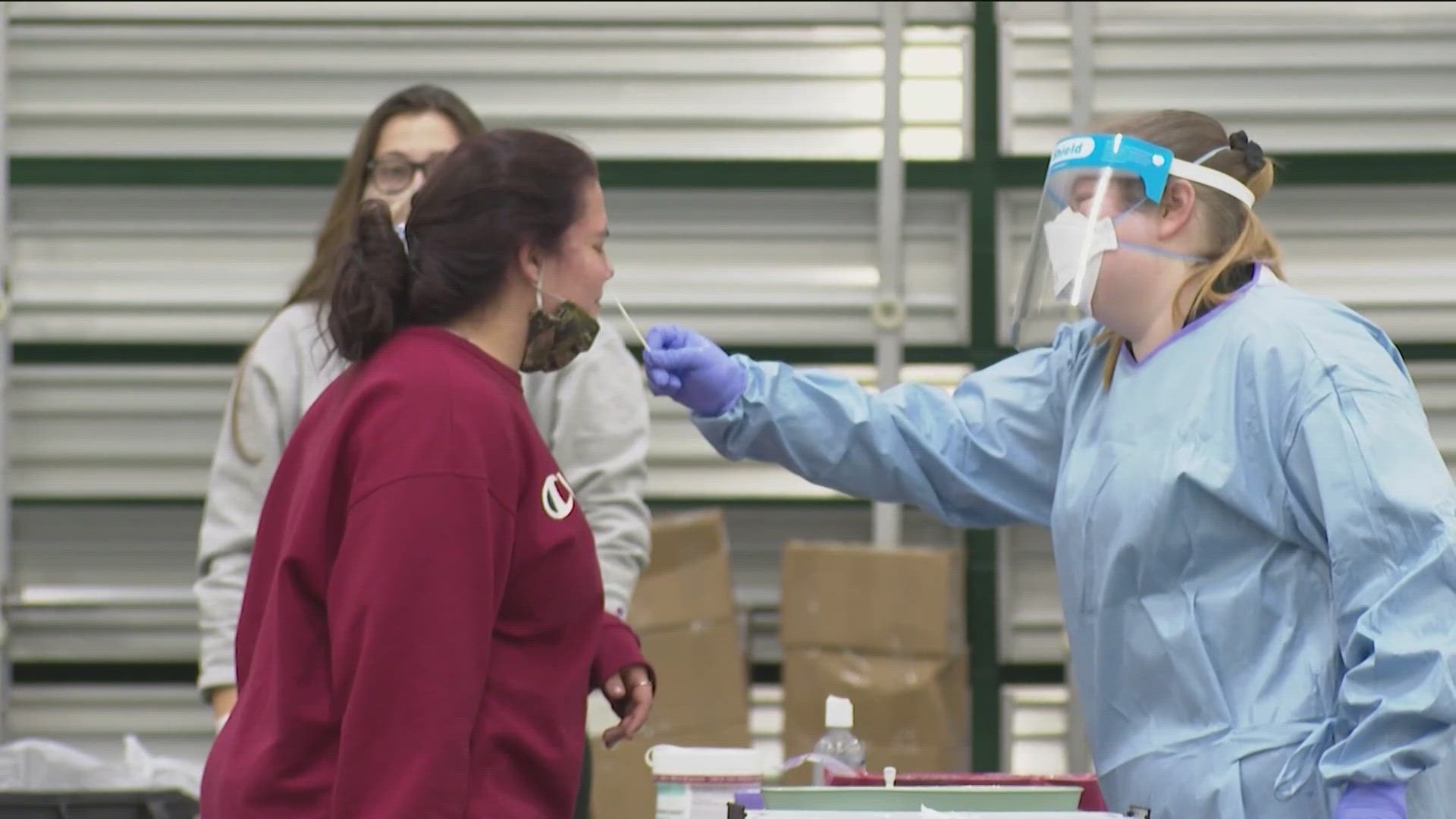Health officials have been talking about "underlying conditions" that could make coronavirus or COVID-19 more serious.
But what exactly are those underlying conditions? The Minnesota Department of Health has published a list to help people understand whether they might be considered high-risk.
MDH says these conditions "may increase the risk of serious COVID-19" for people of any age:
- Blood disorders (e.g., sickle cell disease or on blood thinners).
- Chronic kidney disease as defined by your doctor. Patient has been told to avoid or reduce the dose of medications because kidney disease, or is under treatment for kidney disease, including receiving dialysis.
- Chronic liver disease as defined by your doctor. (e.g., cirrhosis, chronic hepatitis) Patient has been told to avoid or reduce the dose of medications because liver disease or is under treatment for liver disease.
- Compromised immune system (immunosuppression) (e.g., seeing a doctor for cancer and treatment such as chemotherapy or radiation, received an organ or bone marrow transplant, taking high doses of corticosteroids or other immunosuppressant medications, HIV or AIDS).
- Current or recent pregnancy in the last two weeks.
- Endocrine disorders (e.g., diabetes mellitus).
- Metabolic disorders (such as inherited metabolic disorders and mitochondrial disorders).
- Heart disease (such as congenital heart disease, congestive heart failure and coronary artery disease).
- Lung disease including asthma or chronic obstructive pulmonary disease (chronic bronchitis or emphysema) or other chronic conditions associated with impaired lung function or that require home oxygen.
- Neurological and neurologic and neurodevelopment conditions (including disorders of the brain, spinal cord, peripheral nerve, and muscle such as cerebral palsy, epilepsy [seizure disorders], stroke, intellectual disability, moderate to severe developmental delay, muscular dystrophy, or spinal cord injury).
The state of Minnesota has set up a hotline for general questions about coronavirus at 651-201-3920 or 1-800-657-3903, available 7 a.m. to 7 p.m. The Minnesota Department of Health has also issued recommendations for "community mitigation" to stop the spread of coronavirus across the state.
MDH maintains a regularly updated webpage with "Situation Updates," including the status of "persons under investigation" who are being tested. MDH also has a larger COVID-19 coronavirus information page, with links to additional facts and resources about coronavirus.
The Wisconsin Department of Health Services also keeps this page updated with numbers of tested cases, and those that tested positive, along with more information for Wisconsin residents.



